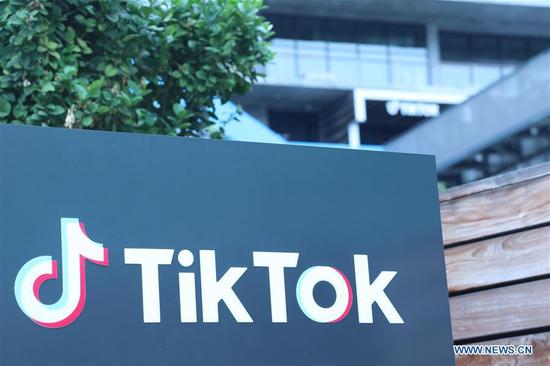TikTok CEO vows to take ban fight to U.S. Supreme Court
TikTok CEO Shou Zi Chew vowed to take the fight against a U.S. ban on the popular short video app to the U.S. Supreme Court, after a U.S. federal court on Friday upheld a law requiring its parent company ByteDance to divest its app in the U.S. by January 19, 2025 or face a ban, the Global Times learned from the company on Saturday.
Chew on Friday told the video app's staff that it will try to get the courts to halt the law from going into effect. "Our next step is to seek an injunction of the ban, pending review by the U.S. Supreme Court," Chew wrote in a memo to staff. "While today's news is disappointing, rest assured we will continue the fight to protect free speech on our platform," Chew wrote, according to the company.
U.S. media outlet The Information also reported on the TikTok CEO's vow to take the ban fight to the U.S. Supreme Court and his internal memo to staff.
TikTok has stated that it will appeal the case to the U.S. Supreme Court. "The Supreme Court has an established historical record of protecting Americans' right to free speech, and we expect they will do just that on this important constitutional issue. Unfortunately, the TikTok ban was conceived and pushed through based on inaccurate, flawed, and hypothetical information, resulting in outright censorship of the American people," TikTok said in a statement regarding the U.S. appeals court's earlier decision.
The statement further noted that the TikTok ban, unless stopped, will silence the voices of over 170 million Americans here in the U.S. and around the world on January 19th, 2025.
In April, U.S. President Joe Biden signed into a law that sought to force the sale of TikTok to a U.S. owner or face an effective ban. In May, ByteDance, TikTok and a group of social media influencers filed a lawsuit against the law, arguing the law violates the right to free speech. But on Friday, federal appeals court panel upheld the law, according to media reports.
The American Civil Liberties Union (ACLU) also slammed the U.S. appeals court's decision. "This ruling sets a flawed and dangerous precedent, one that gives the government far too much power to silence Americans' speech online. Banning TikTok blatantly violates the First Amendment rights of millions of Americans who use this app to express themselves and communicate with people around the world," said Patrick Toomey, deputy director of ACLU's National Security Project, according to a statement on its website.
On March 14, 2024, commenting on the U.S. House of Representatives' passing of the legislation that would ask ByteDance to divest TikTok, the Chinese Foreign Ministry said that the bill puts the U.S. on the wrong side of the principles of fair competition and international trade rules.
"If 'national security' can be abused to bring down other countries' competitive companies, there would be no fairness or justice at all. It is sheer robber's logic to try every means to snatch from others all the good things that they have," Wang Wenbin, then Chinese Foreign Ministry spokesperson, told a regular press conference.

